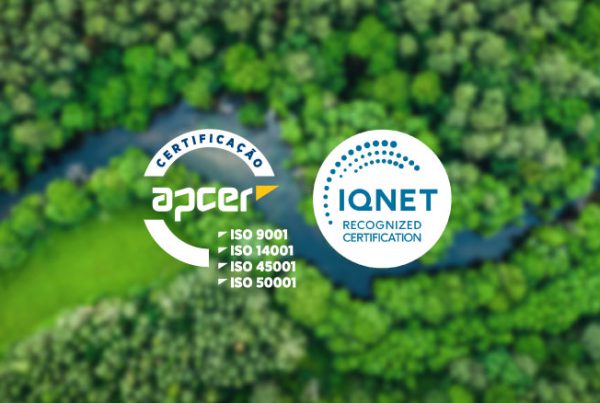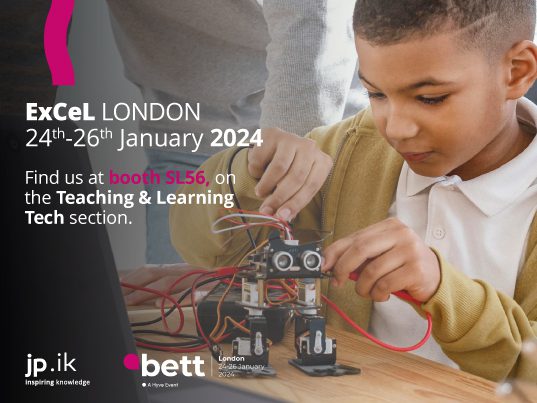Our vision on technologies to cover educational goals is pretty clear: there is no educational aim that doesn’t belong to a specific context, that is not inspired by the people that vivify the system and that is not connected to a certain idea for the future. So, if technologies are to respond to educational challenges they should, as well, be human-centred and future-oriented – forecasting its ethical and decisive implications.
Any integration of education technology (edtech) should, therefore, be considered in a meaningful and inclusive learning continuum that not only comprehends students’ achievement but also teachers’ engagement and fulfilment with their profession. This means we see technologies as a pre-text for development, as a chance to question practices and thoughts towards wider and deeper forms of learning and understanding, whatever the educational moment in our lifespan. As a process that can only be sustained through resolute endeavour, the inclusion of powerful resources in educational environments invariably requires the care for a certain kind of mindset and the competencies to thrive towards the expected changes. These initiatives are likely to be under the spotlight of assessment, at least during the first rollout steps. And if assessment – as a self-monitoring measure for meaning – is not only desirable but also self-sustainable, it may cause individual and institutional pressures that can disrupt the intentions defined for the project at its very beginning. Hence there cannot be a single thought on technologies for Education that ignore the role politics, leaderships, professional development and evaluation play in the diverse educational landscapes.
If someone thinks of a pedagogical layer within an edtech company as a division that asserts the patterns and frameworks for the development and use of a certain kind of hardware and software solutions is definitively not thinking about us. It’s not that we do not believe or do not participate at this stage of R&D business. In fact, that is the bottom level of a relevant component of the game. But that’s it: just a small part of the equation of understanding the challenge that new devices, with such potential, represent to an education system.
This reflection, based on a major study we have designed, sponsored by Intel and in partnership with the University of Porto, led us to a research on the variables that are critical to integrate new technological approaches. That research output was the design of a theoretical framework (the ik.model), where hardware and software components live together with two other assets that seem not to be systematically explored in other conceptual approaches: a processual strategy and a relational axis. So, all the Inspiring Education Services perspective blooms from that theoretical approach, where no single slice may be considered alone. The awareness of all the stakeholders and possible participants of an educational project, and particularly the kind of relationships and forces between them (e.g., Ministry of Education-edtech providers-Teachers, Teachers and Unions, Parents and Teachers, Students-Teachers-Parents…) are strategically and intentionally conceived whenever an educational project that embraces edtech is about to be designed. This consultancy phase is key to pursue valuable and shared motivations and goals. At this stage, educational scenarios may be understood from within, through the voices of those that daily respond to their challenges and particular configurations.
So, if technologies are to enter the formal learning space, the two first questions will be:
- how can they benefit students in their academic achievement, citizenship development, and personal lives? and
- how can teachers evolve to wider and more personally rewarding levels of professionality?
Bearing these questions in mind, a typical training offer seems not to be the answer. And that is not because we are thinking of a training merely oriented to digital capacitation on an educational solution. In fact, any training that targets educational agents is expected to go beyond those initial terms. In this context, just a forthright participation and deep understanding will enable any kind of technology to make a difference in educational environments. This comprehensive approach targets those educational agents in relation to their new roles in the educational initiative: some will implement or monitor, some other will evaluate and report, some will train others or be a project champion engaging people… All these roles and all the layers of engagement and capacitation needs require specialised care and consideration. Hence, mentoring, shadowing training and evaluation experiences, supervising and giving contingent feedback, enabling communities of practice to emerge are all systematic ways to enable action. Through these distinguished modalities – the ik.learning offer – we propose to look at an educational project throughout the spectrum of its implementation challenges. This way each role is enabled and respected in the course of its own appropriation.
And if new technological resources enter the educational mission to leverage current living conditions they must come with a coherent, sustained, and holistic plan. These guidelines will enable action to be goal-oriented and measured in its processes and results. Results are read as gains if they are perceived that way by the ones involved – students, teachers, parents, communities… This perspective is the baseline of any impact assessment proposal in the educational field: it must be an ethnographic one, participated and owned by its owners. Thus, our offer comprehends the ik.impact assessment, that is a combined toolkit of experiences that favours the development of a joint narrative on the educational edtech project while questioning the conditions and processes of its rollout. This intentional strategy enables people to talk freely about their difficulties, needs, expectations, and further hopes. And all this seems to contribute to something crucial in the educational field: to foster a culture of self-assessment practices that naturally come from within, with creative and context-relevant methodologies that act upon participation and meaning.
So, for us, edtech is just the beginning of a long-lasting relationship that everyday commits with the educational strengths. The beginning of a developmental path that opens the present to wider horizons, ethically and happily apprehended through a chain of people that daily restore sense to initiatives and projects so many times top-down designed. The Inspiring Education Services are at the heart of jp.ik’s strategy as it spreads life throughout any organic element of our educational solutions. They are not the glue, since we avoid parts and fragments. Indeed, they are the blood of a system that lives.
Contribution by:
Ana Paulino and Ana Mouta are Pedagogy Specialists at jp.ik



